SOFTWARE FREEDOM DAY CELEBRATION


Topics we have done till now
Web Technology
Python
Internet Security



As we all know
A computer consists of both software and hardware.
Can we install Python on any hardware directly, can we?
No, we need a utility known as Operating System.

An operating system (OS) is the utility that manages computer hardware and software resources and provides common services for computer programs.
All computer programs (excluding firmware) require an operating system to function.

Firmware
Permanent software programmed into read only memory.
Better say softwares in remotes, washing machines etc.
Really, I never cared about this
I have
- Start Menu, where I can look for softwares
- Control Panel, where I can change the settings
- A warning on the right side saying my window is not genuine
- An anitivirus to protect myself
- And all of these were there with my PC when I purchased
The OS you are using is a version of Microsoft Windows.
The people at HP, Dell and other companies install this OS because they have partnership with Microsoft.

Lets jump to Linux
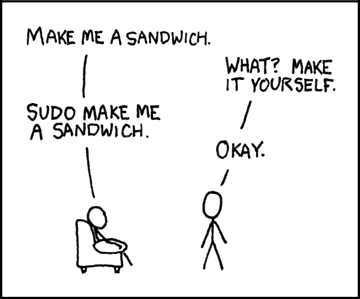
What is LINUX?

An open-source operating system modelled on UNIX
So its an operating system.
Definition in documentation
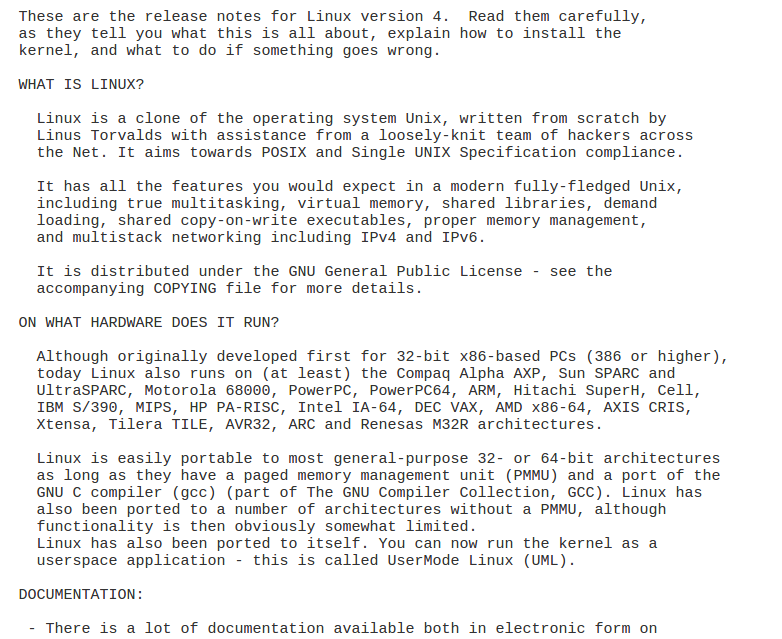
Every definition uses the term UNIX, what is it?
Hold on for some time.

the new Power8 servers IBM is releasing for deep learning.
Facebook concerns about LINUX

Linus Torvalds(Creator of LINUX & GIT)
Headquarters of Linux
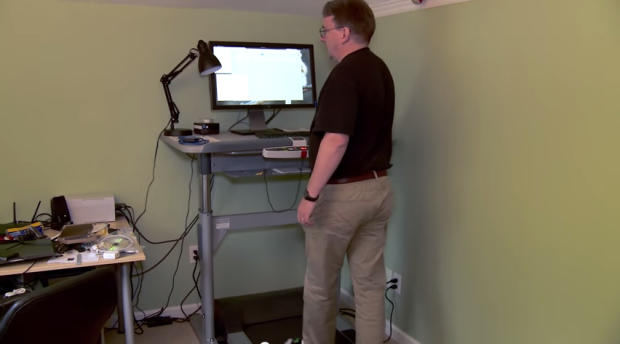
Its getting boring, video time.
Video Link : https://www.youtube.com/watch?v=RaFNXQ8Dat0

- A Kernel (nucleus)
- A Open-Source Operating System
Points to remember!
UNIX time
What it is today?
A family of multitasking, multiuser computer operating systems
Some 40 years ago
Small, flexible system used exclusively by programmers.
Developed in the 1970s at the Bell Labs research center by Ken Thompson, Dennis Ritchie, and others.
Why Linux?
Linux gives you the Freedom
Linux follows the free software philosophy and hence gives its users the freedom to modify, copy, and share Linux. It is under the GPL(General Public License)
The GNU General Public License (GNU GPL or GPL) is a widely used free software license, which guarantees end users the freedoms to run, study, share and modify the software.

Forget about Viruses
Linux has hardly any viruses. It's not that there aren't any viruses for Linux but Linux is more secure and less virus prone.

Need new Softwares, Linux gets it for you!
-
Go to Package Manager of Linux, type the keywords and its done.
-
Go to command line, if it is Debian based package manager type
apt-get install package name
-
If it is RPM based type
yum package-name
System Instability
Linux can run for years without needing to be restarted (most internet servers run Linux, and they usually never restart). Linux is one of the most stable operating systems in the market yet.
Let your old computer have a second life!
Hardware required for Ubuntu Desktop Edition
-
700 MHz processor (about Intel Celeron or better)
-
512 MB RAM (system memory)
-
5 GB of hard-drive space (or USB stick, memory card or external drive but see Live CD for an alternative approach)
-
VGA capable of 1024x768 screen resolution
-
Either a CD/DVD drive or a USB port for the installer media
-
Internet access is helpful
Forget about Drivers
Linux doesn't need separate drivers. Most of the drivers are already included in the Linux Kernel, the core of the system, and that comes with every single Linux Installation. This means:
-
A very fast and standalone installation process.
-
Out of the box ready peripherals.
-
Less harm for the planet.
Its Everywhere!

Facts
-
Linux’s mascot is a penguin named “Tux”.
-
Titanic was the first feature film produced on Linux servers.
- There are almost 115 million lines of code.
- World's most active Open Source Project.

Dive into Linux (Terminology)
The kernel is a computer program that constitutes central core of the Computer System.

KERNEL
Shell
A shell is user interface which helps in using the operating system services. Operating system shells generally use CLI(Command Line Interface) or GUI(Graphical User Interface). It wraps up Kernel that is why it is named as Shell.
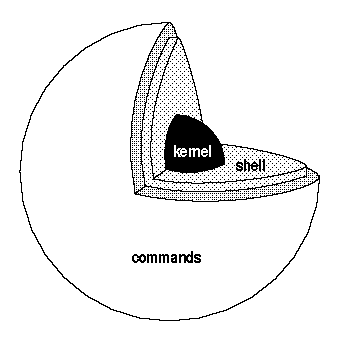
Difference between kernel and shell
- The kernel is the center of the operating system that manages everything.
- The shell is just a particular program, a friendly interface that translates your commands into some low-level calls to the kernel.
Command Line
A Command Line Interface is a means of interacting with a computer program where the user (or client) issues commands to the program in the form of successive lines of text (command lines).
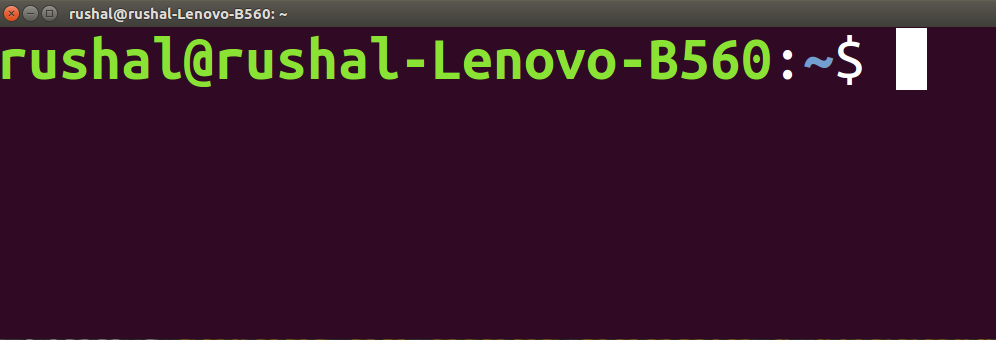
File Systems
A File System is used to control how data is stored and retrieved. Without a file system, information placed in a storage medium would be one large body of data with no way to tell where one piece of information stops and the next begins. By separating the data into pieces and giving each piece a name, the information is easily isolated and identified.
Desktop Environments
A Desktop Environment is an implementation of the desktop metaphor made of a bundle of programs running on top of a computer operating system, which share a common graphical user interface (GUI), sometimes described as a graphical shell.
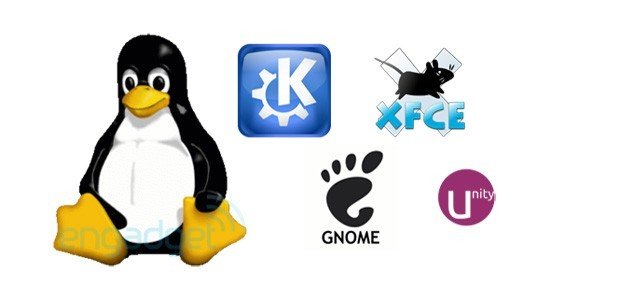
Some more facts!
-
Only 2% of today's kernel contains code written by Linus.
-
The Large Hadron Collider at CERN and the Bullet trains in Japan uses Linux to maintain and manage all controls.
How do you think a computer starts?

- Switch on the plugs
- Wait for few moments
- Enter the password if any
- and we are done!
Let's dig deeper

- The computer starts with Booting.
- Instructions for the Booting are built into chip named BIOS(Firmware).
- The firmware of computer looks for the Bootloader.
- Bootloader accomplishes the task of loading an operating system(kernel) on the memory.
Boot Loader
A boot loader is a computer program that loads the operating system and some other system software for the computer after the completion of power on self tests.
- Linux is the largest installed base of all general purpose operating systems.(Android, Servers, Supercomputers Embedded Systems etc)
- Linux is packaged in a form of Linux distributions or distro's for both Desktop and Server use.
Again facts!
Package manager

A package manager or package management system is a collection of software tools that automates the process of installing, upgrading, configuring, and removing computer programs for a computer's operating system in a consistent manner. They work closely with software repositories, binary repository managers, and app stores.
Linux Distributions
(Distro's)
Ubuntu

Redhat
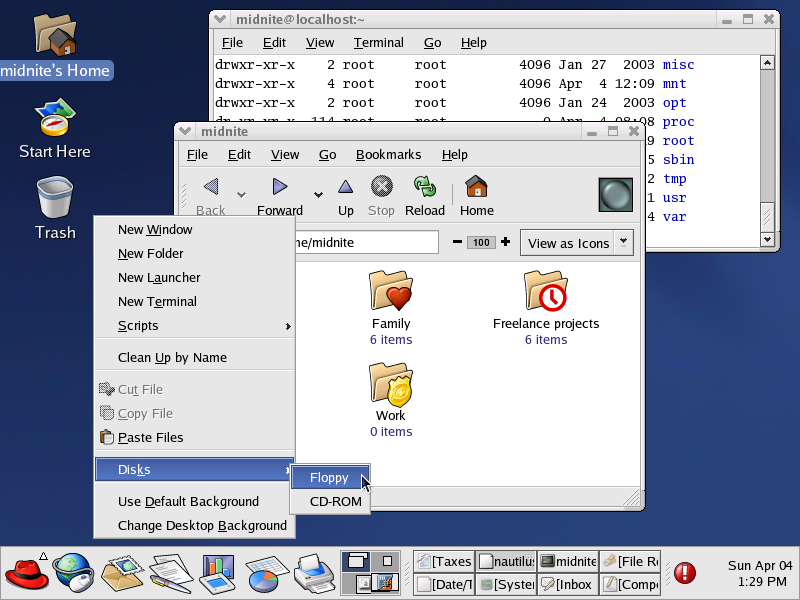
Elementary

GENTOO

KALI

Arch Linux

Linux Mint

OpenSUSE

Communities we should seek
- The Linux Foundation
- http://www.linuxquestions.org/
Distro Specific:
- Ubuntu: http://askubuntu.com/
- OpenSuse: https://openqa.opensuse.org/
- Reddit: https://www.reddit.com/r/linux/

Questions?
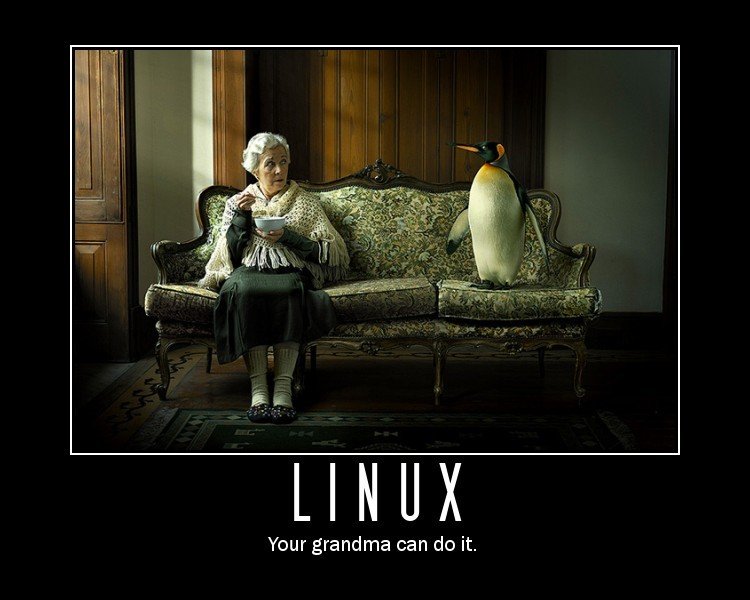

Rushal Verma(rushalverma.wordpress.com)
Pulkit Goyal(pulkitgoyal.com)
Linux
By Rushal Verma
Linux
Linux Workshop for Software Freedom Day 2016
- 2,151



